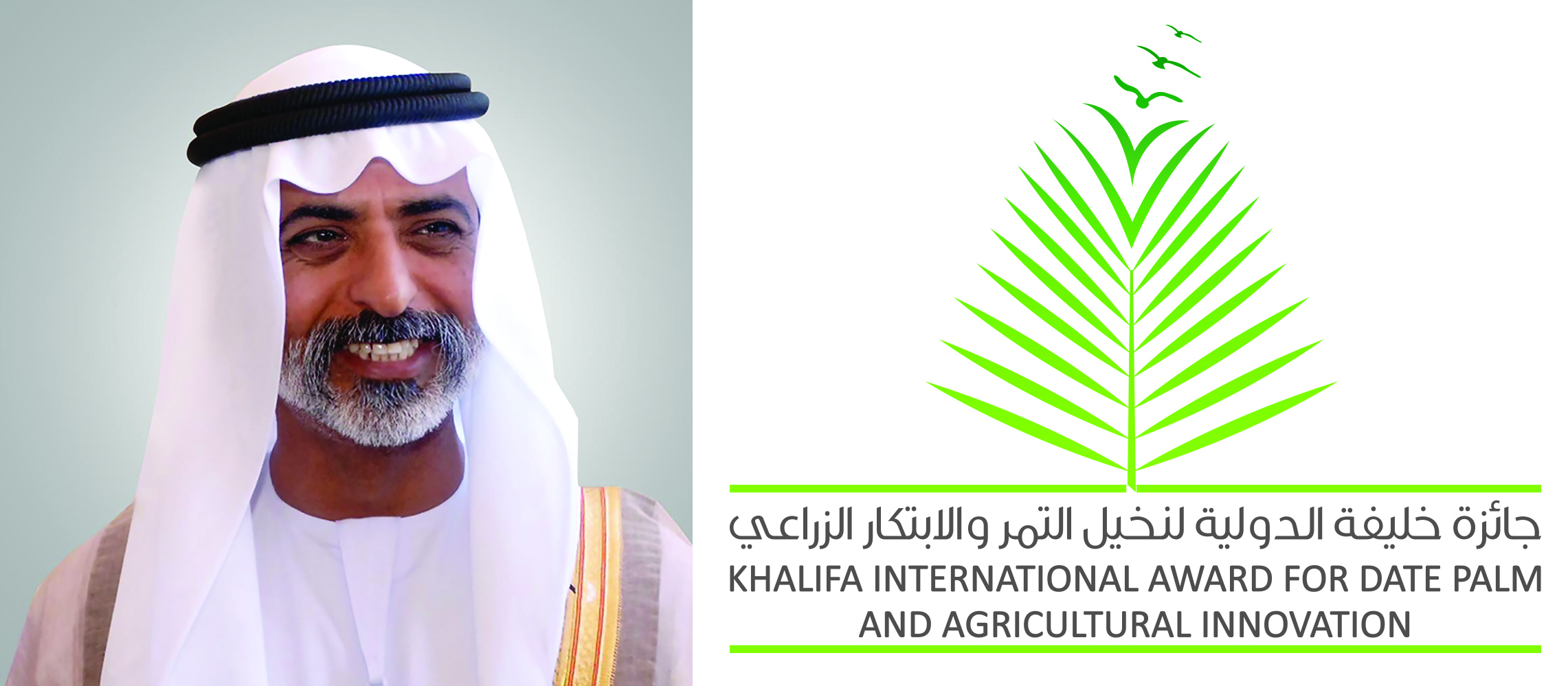
Award Program
Khalifa Award News
Abu Dhabi Date Palm Exhibition News
Egypt Festival News
Jordan Festival News
Sudan Festival News
Morocco Festival News
Mauritania Festival News
Mexico Festival News
Pakistan Festival News
International Conference News

Under the directives of H.E. Sheikh Nahayan Mabarak Al Nahayan, the "Khalifa Award" presents its scientific international report during a virtual session
The date palm is an opportunity to rebuild the economy in a way that supports a green recovery
With the attendance of 54 experts in the Date Palm cultivation sector, representing 19 countries from around the world.
We are in the United Nations Decade to Restore the Planet's Ecosystem, and the date palm tree is a guarantee of sustainable livelihood
Under the directives of H.E. Sheikh Nahayan Mabarak Al Nahayan, Minister of Tolerance and Coexistence, Chairman of the Award’s Board of Trustees, the Award’s General Secretariat organized the virtual scientific session “The Khalifa Award Report- Bridging Boundaries” on Monday the 8th of February, 2021, presented by Dr. Abdelouahhab Zaid, Prof. Award’s Secretary General, and Professor Harrison Hughs from the United States, in the attendance also of 54 elite experts and academics specialized in the date palm cultivation, date production and processing, representing 19 countries from around the world. This lecture comes within the framework of the Award's commitment to spread scientific knowledge and awareness of good agricultural practices of the date palm tree to empower farmers and improve the quality of dates.
Dr. Abdelouahhab Zaid, Prof., Award’s Secretary General, highlighted the factor that the year 2021 marks the beginning of a new era of sustainability. It is the year that the United Nations began the Ecosystem Restoration (2021-2030) plan. As climate change is back on most of the world’s agenda, there is a great opportunity for the world to move towards a better phase with green recovery in mind. As economies begin to restart, the environment should be the main attention to everyone. Where countries should focus their economic recovery around green initiatives, there is clearly great economic potential. The date palm is a perfect example, as date palm trees and their downstream products have the potential to rebuild and revitalize economies, while also helping to dramatically reduce carbon emissions and reverse the effects of desertification, leading to ecosystem degradation. This is an industry that can help create a healthier, richer, and more sustainable world.
Dr. Zaid, then presented the major role the date palm tree could play in the battle against climate change as date palm trees can absorb huge concentrations of carbon dioxide, in fact, each tree can absorb 200 kilograms of carbon dioxide every year. This means that in the Middle East and North Africa region alone, 100 million date palm trees can absorb 28.7 megatons of carbon dioxide annually. Naturally, this will help keep carbon dioxide levels low and stop climate change.
The date palm tree contributes to the health of those who inhabit the planet as well. Products made with dates include date molasses, date paste, and chopped dates, all of which have significant health benefits. Date palm has been shown to be extremely healthy and full of nutrients like fiber and antioxidants, which can improve digestion and reduce the risk of disease. Therefore, not only can date palm cultivation boost global economies, it can do so by encouraging healthy living as well, added Dr. Zaid.
Dr. Zaid also emphasized the fact that this may not be widely recognized yet, but the date palm tree is a guarantee of sustainable living. By conserving and growing date palm trees, we can overcome environmental, social and economic challenges. We are officially in the United Nations period to Restore the Planet's Ecosystem (2021-2030). While the ongoing pandemic may limit some initiatives temporarily, it is crucial that we begin to reverse desertification and other impacts of climate change that are destroying the raw nature. This report provides us with an opportunity to rebuild our society and our economies, as it is more than just a glimmer of hope.











